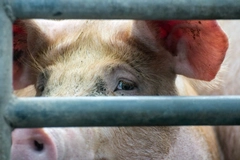
- Industry news
Industry news
- Category news
Category news
- Reports
- Key trends
- Multimedia
- Journal
- Events
- Suppliers
- Home
- Industry news
Industry news
- Category news
Category news
- Reports
- Key trends
- Multimedia
- Events
- Suppliers
Antitrust: Commission to Investigate Suspected Food Packaging Cartel

The Commission has sent a statement of objections to manufacturers or distributors of polystyrene (PS) foam trays and polypropylene (PP) rigid trays. These products are widely used for packaging food – such as fish, meat or cheese – in the retail sector.

1 Oct 2012 --- The European Commission has informed thirteen companies active in the production and/or distribution of retail food packaging of its preliminary view that they may have participated in a cartel in the European Economic Area (EEA) for up to eight years, in breach of EU antitrust rules. The sending of a statement of objections does not prejudge the final outcome of the investigation.
The Commission has sent a statement of objections to manufacturers or distributors of polystyrene (PS) foam trays and polypropylene (PP) rigid trays. These products are widely used for packaging food – such as fish, meat or cheese – in the retail sector.
The Commission has concerns that these companies may have engaged in price fixing, market sharing, customer allocation, exchanges of commercially sensitive information and bid-rigging, in breach of Article 101 of the Treaty on the Functioning of the European Union (TFEU) that prohibits cartels and restrictive business practices. This behaviour, if established, may have affected direct customers, such as supermarkets, and ultimately end-consumers.
The Commission respects the presumption of innocence and the rights of defence and does not reveal the names of the companies concerned at this stage of the investigation.
A statement of objections is a formal step in Commission investigations into suspected violations of EU rules that prohibit cartels and restrictive business practices (Article 101 of the Treaty on the Functioning of the European Union and Article 53 of the European Economic Area Agreement). The Commission informs the parties concerned in writing of the objections raised against them and the companies can examine the documents on the Commission’s investigation file, reply in writing and request an oral hearing to present their comments on the case before representatives of the Commission and national competition authorities.
If, after the parties have exercised their right of defence, the Commission concludes that there is sufficient evidence of an infringement it can issue a decision prohibiting the conduct and impose a fine of up to 10 % of a company’s annual worldwide turnover. This is without prejudice to a company’s ability to receive full immunity for being the first to reveal information about a cartel or to receive a reduction in its fine for supplying evidence of significant added value according to the Commission’s Leniency Notice.
The duration of cartel investigations varies according to the complexity of the case, the number of markets and companies involved and the extent to which they cooperate with the Commission.










